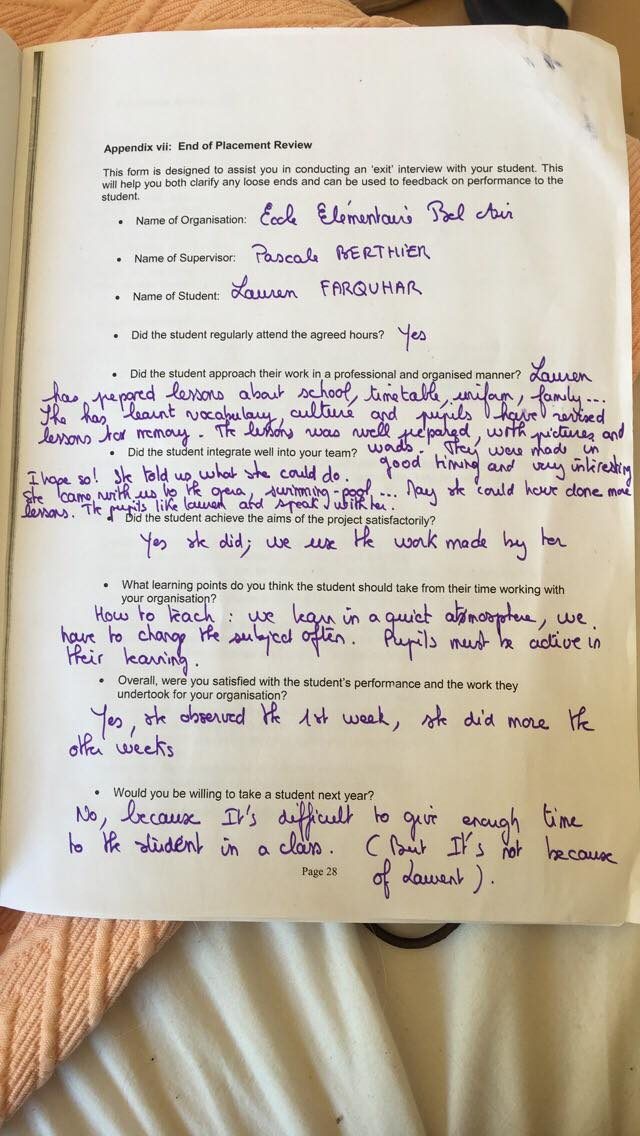Throughout my time on placement, I have learnt a lot about language teaching, specifically teaching a foreign language. Whilst observing lessons, the teachers advocated using only English in their English lessons, which required some degree of self confidence from them in their abilities. I think that self confidence is the key limitation for me when I speak French, as I lack the confidence to practice my speaking skills aloud. Continuing with my own self-study of French using different resources and building on my vocabulary will help me develop more confidence so that I can execute some of the teaching techniques I observed from the teachers on placement. I am also taking part in the Modern Languages module next year, which when partnered with further reading, will help me develop a more academic and theoretical knowledge of the techniques I saw.
From a personal and professional perspective, I also feel as though this placement has helped me to become more communicative, as the language barrier between me and the teachers meant that I received little guidance from them regarding lesson plans, resources, assessment etc and work a lot harder to express myself and my ideas. This was very different from the one on one support I received from my teacher in first year and so I had trust in my own teaching ability a lot more, relying a lot less on constant reassurance. I think this was an important step for me to have taken, as by the end of my placement, I was communicating with all the staff and sharing my ideas with them rather than waiting for them to approach me. I would like to continue to develop, as I think it will make me a more valuable and integrated member of a team when in school. During lectures, I am often a person who lacks the confidence to share their thoughts and ideas with the group, therefore, if I work on being a more contributive member in a group of my peers, it will help me build upon the skills and traits I have began to engage with during this placement.


